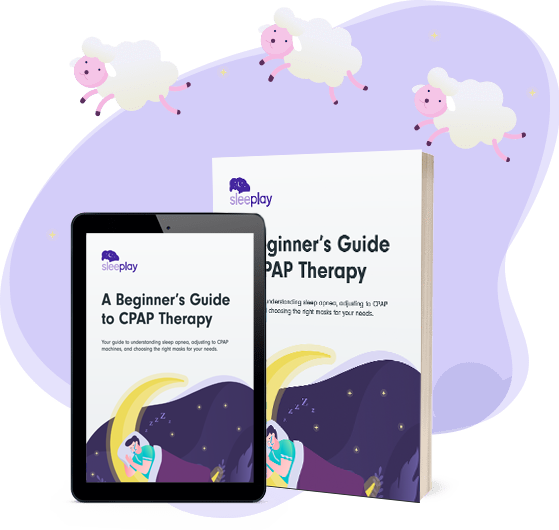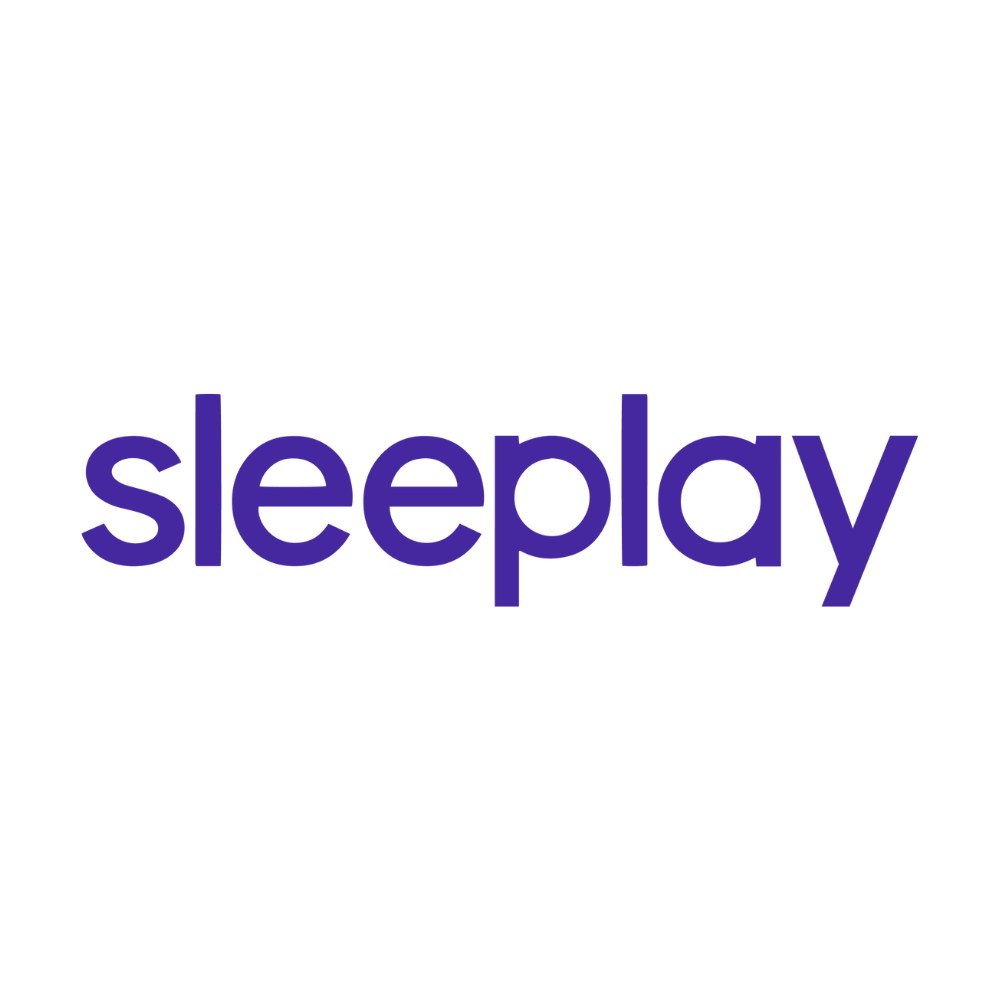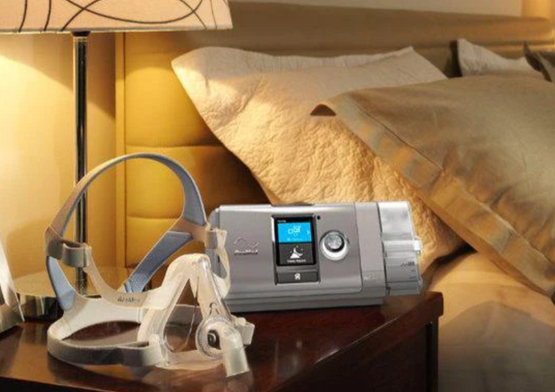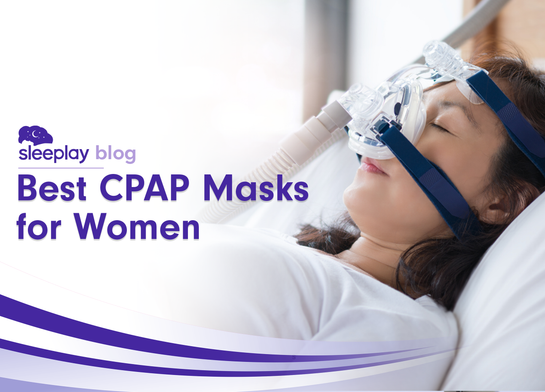The Best CPAP Masks for Mouth Breathers
Continuous positive airway pressure (CPAP) therapy is the most common and effective treatment for obstructive sleep apnea. However, mouth breathers often face challenges like leaks and dryness, hindering long-term CPAP adherence.
For a more effective and sustainable CPAP therapy experience, selecting the right CPAP mask for mouth breathers is key.
Continue reading to learn more about the best CPAP masks for mouth breathers on the market and how to optimize your CPAP treatment for long-term success.
What’s the Best CPAP Mask for Mouth Breathers?
The type of CPAP mask that best suits you will depend on your needs and preferences. Most people who sleep with their mouths open often find significant advantages in utilizing a full-face CPAP mask, which not only forms a secure seal but also ensures a consistent and smooth airflow. Despite the common perception of full-face masks being bulkier, the latest designs prove otherwise.
Take a look at our top picks of mask options for mouth breathers.
ResMed AirFit F40 Full-Face Mask
The AirFit F40 full-face CPAP mask, the latest full-face mask design by ResMed, offers a minimalist approach with a low-profile design for ultimate comfort.
The mask comes with an excellent system that has a frame, a cushion for your face, and super-soft headgear that feels comfy when you wear it.
The AirFit F40 mask has an AdaptiSeal silicone cushion to conform to your face shape. This means it's comfier to wear and doesn't leak air. The cushion is also built to last and helps keep the CPAP therapy working effectively by staying snug even when you move around in your sleep.
The AirFit F40 is incredible because it's super quiet, with noise levels as low as 20 dBA. The mask’s frame has a free opening above your nose, allowing you to wear reading glasses or other accessories. This mask is a great fit for active sleepers, side sleepers, and people who require high-pressure CPAP settings.
ResMed AirFit F20 Full-Face Mask
The ResMed AirFit F20 Full-Face Mask is one of our most popular and best-selling masks, praised for its fit, comfort and effectiveness. It’s the perfect choice for mouth breathers.
This full-face CPAP mask has a flexible frame, cushioning for the bridge of your nose, and it contours around your chin to ensure that your mask fits properly and that you get a good seal.
With this CPAP mask, you can choose between different mask cushion sizes to fit your facial features best. There’s also a version of this mask “for her”, which features a slender design tailored to women with sleep apnea.
This is a great CPAP mask for those requiring high-pressure CPAP therapy settings, side sleepers, and people who watch TV, read or need to wear glasses right before sleep.

Fisher & Paykel Simplus Full-Face Mask
The Fisher & Paykel Simplus Full-face Mask is the ideal mask for active sleepers since it has Integrated Stability Panels that hold the mask in place while you sleep, thus increasing the benefits of CPAP therapy.
It is a low-profile, lightweight CPAP mask. It comes with the RollFit™ Seal technology, which works with the Integrated Stability Panels to keep the mask in place regardless of your sleeping position and prevents leaks.
The ErgoForm™ Headgear is made up of stretch and non-stretch panels to provide structure and support for optimal performance and comfort. You can purchase it with the FitPack, which includes all the available cushion sizes to help you find the one that fits your head perfectly.

Philips Respironics Amara View Full-Face Mask
The Philips Respironics Amara View Full-Face Mask features headgear with a four-point adjustment system around the silicone mask frame and a fifth adjustment point at the top of the head with a crown strap. This helps promote a more secure grip and even distribution of the pressure around the head.
The nasal opening is placed right under the nose, allowing you to do things before bed without removing the mask. This also prevents red marks, discomfort and irritation on the bridge of your nose.
Its innovative design keeps your line of sight open while you use your CPAP equipment since it makes no contact with your forehead, unlike other full-face CPAP masks.
This is the right CPAP mask for people with claustrophobia due to its open design, making it ideal for people with facial hair.

ResMed Mirage Quattro Full-Face Mask
The ResMed Mirage Quattro Full-Face Mask has a classic design that starts at the bridge of your nose and covers your nose and mouth completely. This mask’s cushion seals at the chin to better accommodate jaw movement during sleep.
This mask has the MicroFit Dial feature that allows CPAP users to find the correct fit using 24 small incremental adjustments to accommodate different face shapes and optimize mask fit and comfort.
The Mirage Quattro is one of the best mask options for mouth breathers since it delivers pressurized air directly into the mouth. It also has vent holes and a built-in valve that allows you to breathe fresh air even if the airflow of your mask is blocked.
Philips Respironics Dreamwear Full-Face Mask
The Dreamwear Full-Face CPAP Mask features a Top-Of-Head Hose, a Swivel Elbow that gives you freedom of movement during the night and a cushion under the nose that provides a clear frontal view for maximum comfort.
Its frame is lightweight and flexible, and its unique design allows airflow through the frame to help you sleep more comfortably. This full-face mask has a chin strap that provides additional support for a better seal.
The four-strap Dreamwear headgear is made of a soft fabric and foam that rests at the back of the head, which stabilizes the mask without the need to over-tighten it. This mask allows you to wear glasses, use electronics, read, or watch TV in bed thanks to its minimal contact with your face.
This CPAP mask is a great option for side and stomach sleepers and those who struggle to find a comfortable position to sleep at night due to its hollow frame and stable hose connection at the top of the head.
ResMed AirFit™ F30i Full-Face Mask with Headgear
The ResMed AirFit™ F30i’s open design allows for fewer touch-points on your face, and since its hose is attached to the top of the head, it allows you to sleep in whatever position you want.
Its magnetic clips and bottom straps allow you to put on, remove and adjust the mask quickly and easily. Also, this mask is one of the quietest in the market, thanks to its quiet venting technology.
The AirFit™ F30i is great for people with beards, those who tend to move a lot in their sleep, and people whose bed partners might be disturbed by the noise of the CPAP machine.

ResMed AirTouch F20 Full-Face Mask with Headgear
The ResMed AirTouch™ F20 Full-face Mask is made of soft materials that ensure a pleasant CPAP therapy experience. The mask seal sits underneath the eyes and adapts to different face types, while the integrated padding helps avoid leaks.
Its UltraSoft memory foam cushion provides less friction and contact pressure than silicone cushions, which leads to fewer red marks on your face after using your CPAP machine.
This mask features diffuser vent technology, which makes it around 89% quieter than previous models. If you forgot to do anything before bed or need to get up in the middle of the night, you don’t have to remove it—just detach it from the tubing, and you are ready to go.
This full-face mask is great for CPAP users with sensitive skin and those who prefer low-profile masks.
At Sleeplay, we make it easier to find the right mask without spending extra money with our 30-day free mask exchange program. We also have a rewards program that allows you to collect and redeem points for extra discounts on all your CPAP supplies.
What Type of Mask to Use for Mouth Breathing?
If you tend to breathe through your mouth, you may wonder what type of CPAP mask to use to make your CPAP therapy as effective as possible. Several mask options are available, but not all may suit your needs.
These are the most common types of CPAP masks:
-
- Full-face CPAP masks: This type of CPAP mask covers both your nose and mouth, creating a seal around them. It’s the ideal type of CPAP mask for mouth breathers, as it prevents air leaks and maintains the desired air pressure level. The latest designs and technology have made these models more convenient and less intrusive, helping prevent discomfort, skin irritation and even feelings of claustrophobia.
-
- Nasal CPAP masks: These masks only cover your nose, creating a seal around your nostrils. They’re usually more comfortable and lightweight than full-face masks, but they don’t perform optimally when you aren’t breathing through your nose. If you breathe through your mouth during sleep, you may lose some air pressure and compromise the effectiveness of the CPAP therapy.
- - Nasal pillow CPAP masks: Nasal pillow masks consist of two small cushions that fit into your nostrils, creating minimal contact with your face. It is the most comfortable and discreet option, allowing you to move freely and reducing the risk of skin irritation. However, just like nasal masks, they work better when only breathing through your nose. They are also prone to cause nasal irritation if the air pressure is too high.
Each type of CPAP mask has its own pros and cons. The best way to choose the right one is to consult your doctor or sleep medicine specialist, who can assess your breathing pattern and recommend the most suitable option for you. You may also need to try different masks until you find the one that fits your face the best.
We have CPAP Experts and Sleep Coaches who can also assist and help you choose the best mask for your needs.
Can a Mouth Breather Wear a Nasal CPAP Mask?
Yes, mouth breathers can use nasal CPAP masks, considering that it may decrease the performance of CPAP therapy. A chin strap can help solve this issue by keeping the jaw closed to ensure that you are breathing through your nose.
Even though nasal CPAP masks are usually a more comfortable alternative for CPAP users, full-face masks are the most recommended type of CPAP mask for mouth breathers.
What Causes Mouth Breathing?
Mouth breathing involves breathing through your mouth instead of your nose. People who are mouth breathers can experience many undesirable side effects, such as dry mouth and bad breath, and if you have sleep apnea, these side effects can worsen.
But what causes this issue? There are many possible causes for mouth breathing, such as:
Sleep Apnea
Sleep apnea is a common sleep disorder that causes the person to stop breathing for a few seconds repeatedly during sleep. This disorder can usually result in snoring and mouth breathing as the person resumes breathing, leading to dryness and irritation of the mouth and throat upon waking up.

Nasal Congestion
Nasal congestion occurs when the nasal passages are blocked or inflamed due to allergies, colds or sinus infections. It can make breathing difficult or impossible through the nose, forcing the person to switch to mouth breathing.
Deviated Septum
A deviated septum means the cartilage wall separating the two nostrils is crooked or misaligned, causing one or both nasal passages to be narrower than normal. It can reduce the airflow through the nose and make mouth breathing more likely.
Enlarged Tonsils or Adenoids
The tonsils and adenoids are lymphoid tissues in the back of the throat and behind the nose. They help fight infections and filter out harmful substances from the air. However, sometimes, they can become swollen or enlarged due to infections or allergies, blocking the upper airway and making it harder to breathe through your nose.
Habit
Some people develop a habit of breathing through their mouth due to stress, anxiety or poor posture. Regular mouth breathing can become ingrained in your behaviour over time and persist even when no physical obstruction is inside the nose. Mindful breathing exercises can help solve this issue in most people.
Can a Mouth Breather Use a CPAP Machine?
Of course! Mouth breathers can use CPAP machines as effectively as any other person, but they have to adjust and keep some things in mind to make the most out of their CPAP treatment.
These are some tips so that you can use your CPAP machine effectively as a mouth breather:
Choose the Right Mask
Even though you can use nasal masks or nasal pillow masks with your CPAP machine, full-face masks are the most recommended CPAP mask option for mouth breathers. This type of mask prevents air from leaking out of your mouth, increasing the effectiveness of your sleep apnea treatment.
Use a Humidifier
A CPAP humidifier is a device that adds moisture to the pressurized air that is delivered by the CPAP machine. This helps prevent some of the most common side effects of using a CPAP machine, like dry mouth and nasal congestion.
Humidifiers allow you to adjust the humidity level to one that suits your preferences so you can have a restful sleep. Most modern CPAP machines have a built-in humidifier, but you can also buy a separate one if needed.
Wear a Chin Strap
If you find nasal or nasal pillow masks to be the right type of mask for you, you should use a chin strap to avoid compromising the quality of your CPAP treatment.
A chin strap is a simple accessory that wraps around your head and chin to keep your mouth closed while you sleep. This can prevent air from escaping through your mouth, decreasing your CPAP therapy's effectiveness.
They can also help reduce snoring and improve your sleep quality. You can use a chin strap with any type of mask, but it’s especially useful if you have a nasal or a nasal pillow mask.
Implementing these tips into your CPAP therapy can be as effective as it is for non-mouth breathers.
Benefits of CPAP Therapy for Mouth Breathing
Mouth breathers with sleep apnea can address various issues from both conditions with CPAP therapy. Some of the most important benefits CPAP therapy has to offer mouth breathers are:
Sleep Quality
CPAP therapy can improve sleep quality by reducing the number of times you wake up due to the uncomfortable side effects of mouth breathing. It can also increase the amount of deep sleep and REM sleep you get each night, which is essential for your physical and mental well-being. You will feel more refreshed and alert when you wake up.
Less Snoring
Snoring is a common symptom of mouth breathing and obstructive sleep apnea. This usually happens when your upper airway is narrowed while you sleep. CPAP therapy can reduce or eliminate snoring by keeping your airway open.
Improved Energy
Mouth breathing can make you tired and sluggish during the day. This is because you’re not getting as much oxygen as you would by breathing through your nose, and your body has to work harder to breathe.
CPAP therapy can boost your energy levels by providing adequate oxygen supply and improving your blood circulation. You will perform better at work, school or any other activity you engage in.
Reduced Risk of Heart Disease
Mouth breathing and sleep apnea can increase the stress on your heart and blood vessels. This can lead to high blood pressure, irregular heartbeats, strokes, heart attacks, and chronic heart failure.
A CPAP machine can lower your blood pressure and reduce the strain on your heart by preventing apnea episodes and improving your oxygen saturation while you sleep. This can lower your risk of developing heart disease (or making it worse if you already have a heart condition).
A CPAP machine can be a life-changing medical device for people with sleep apnea. If you are a mouth breather, remember there are some details to consider to ensure you get all the benefits your CPAP machine offers.
At Sleeplay we’re here to help you choose the best mask for your sleep apnea treatment.
Join the conversation!, login and comment.

Get your guide to understanding sleep apnea, adjusting to CPAP machines, and choosing the right masks for your needs.




